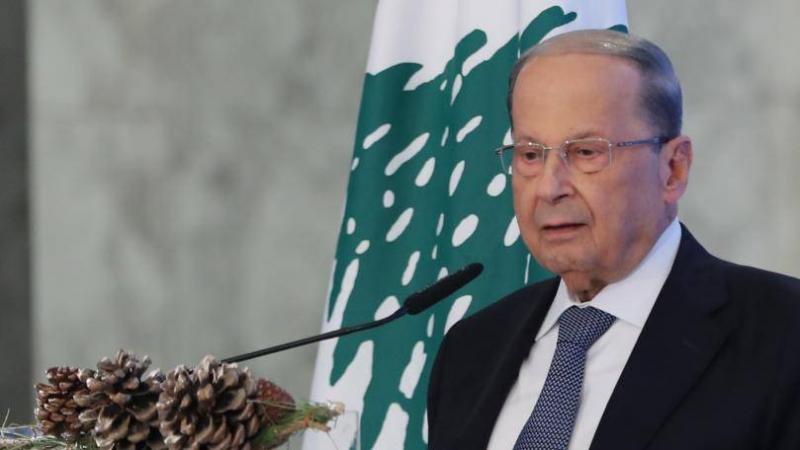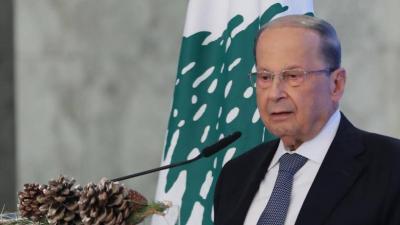President Michel Aoun confirmed that "the handling of the southern maritime border demarcation file starts from preserving Lebanon's interests and its rights in its waters and land. This file, which falls within the scope of international negotiations, is a core responsibility of the President based on Article 52 of the Constitution." Aoun's stance came during his reception today at the Baabda Palace of a delegation of ambassadors from Northern countries, including the ambassadors of Denmark, Merete Juhl, Norway, Martin Yttervik, Finland, Tarja Fernandez, and Sweden, Ann Dismorr.
President Aoun emphasized to the delegation that he will continue his efforts "to achieve positive results in the southern maritime border demarcation file, especially with the arrival of the U.S. mediator in the indirect negotiations with Israel, Ambassador Amos Hochstein, to Beirut at the beginning of next week." He stated: "We will ask Hochstein to resume his efforts to reactivate the indirect negotiations, especially since Lebanon seeks, through these negotiations, to be able to invest its oil and gas wealth in Lebanese waters and to maintain stability and security in the border region."
In response to the ambassadors' questions, President Aoun explained that "the democratic process will continue in the coming days through parliamentary consultations to assign a person to form the new government, which is expected to gain the confidence of the Parliament and begin addressing urgent issues, especially the economic situation, the recovery plan, and negotiations with the International Monetary Fund, which are expected to provide Lebanon with loans to help it overcome the difficult circumstances it is experiencing."
In response to a question from the ambassadors, Aoun noted that "the financial factor played a role in the recent parliamentary elections, and if appeals arise, the Constitutional Council will rule on them according to the applicable constitutional rules." He stressed "the importance of the relations linking Lebanon with Northern countries," explaining Lebanon's position on the Russian-Ukrainian war and its impact on the world's economies.
For their part, the ambassadors of the four countries affirmed their support for Lebanon "in various fields and the continuation of aid in areas that are needed," looking forward to "strengthening relations between their countries and Lebanon." Politically, President Aoun received the Secretary-General of the "Tashnag" Party, MP Hagop Pakradounian, and discussed the general situation in the country and constitutional obligations following the parliamentary elections, particularly the formation of a new government after the parliamentary consultations that the President intends to conduct. The discussion also touched upon the issue of the indirect negotiations for demarcating the southern maritime borders and the mission of Ambassador Amos Hochstein.




